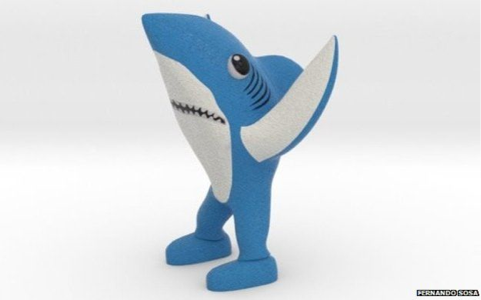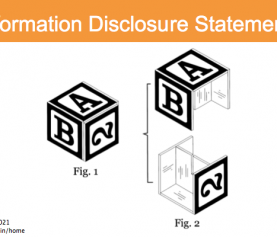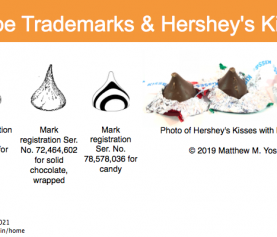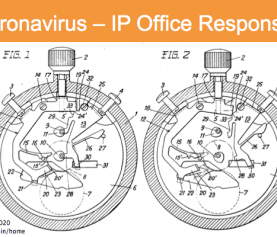Who cares about trademarks?
Do you wonder about trademarks: what are they, and who cares? Trademarks are a crucial asset to any business or brand, and anyone running a business or building a brand should want trademarks to protect their brand identity.
What is the point of a trademark?
The goal of a trademark is to identify the source of the goods, to prevent confusion by consumers. Marks that identify the source of services are called servicemarks. Trademarks are a form of intellectual property (IP) that are helpful to anyone engaged in business.
So, who cares about trademarks?
Anyone doing anything commercial should care about trademarks: business owners, re-sellers, service providers, and individuals. Anyone building a brand should apply to register trademarks or servicemarks. But don’t just take my word for it. Here are a few musicians and athletes who have recently tried to register trademarks, or assert trademark rights against (alleged) infringers.
Celebrities asserting trademark rights:
Katy Perry
Katy Perry’s (official site) Super Bowl XLIX halftime show had great choreography – which made Left Shark stand out (videos on Youtube, for reference of course). Left Shark quickly became an internet sensation. And Katy Perry tried to trademark it (after her attempt to copyright Left Shark failed), along with ‘Right Shark’, ‘Basking Shark’, and ‘Drunk shark’. Her attempts to assert her alleged rights generated a great back-and-forth between her lawyer and the lawyer for Fernando Sosa, who created and published a computer file for 3D printing a Left Shark statue (which you can view on Etsy, here, and an image of which I used on this post). Were her claims valid? That seems unlikely, as she abandoned the trademark applications. But the trend of celebrities asserting trademark rights hasn’t let up.
Taylor Swift
Taylor Swift (official site) has applied to trademark her name, her signature, her initials, and dozens of snippets of lyrics from her songs, including but not limited to ‘This Sick Beat’, ‘Party Like It’s 1989’, ‘Could Show You Incredible Things’, and ‘Nice to Meet You, Where You Been?’. Feel free to apply ™ to any of those, or ® if she succeeds in having any of the applications issued. As a matter of trademark strategy, she has applied for each of the marks in multiple classes, in separate applications – more on that in another post.
And what goods or services is she trying to apply these marks to? She applied for each mark on a wide range of goods, including guitar picks, handbags, wigs, bath linens, removable tattoos, non-medicated toiletries, lapel pins, Christmas stockings, shoe laces, knitting implements, pot holders, napkin holders and whips, harness and saddlery. Yes, it’s a long list, and you can quickly get a sense of it at Justia. If you want to dig in, here’s one of her applications on ‘This Sick Beat’ at the USPTO’s Trademark Status and Document Retrieval site. The important lesson here: trademarks can be important to any business.
Hall & Oates
Hall & Oates (official site) recently sued a company called Early Bird Foods, a food distributor in New York, which sells a granola cereal branded “Haulin’ Oats”. Hall & Oates claimed trademark infringement, and wants them to stop. If that’s all there were to it, this would be an interesting (to lawyers, at least!) dispute over whether the brand name, which sounds like the band name, is infringement or fair use, or parody. But, Daryl Hall and John Oates took this potential dilution of their name seriously enough that a company they own – Whole Oats Enterprises bought a registered trademark for ‘Haulin’ Oats’ for use on oatmeal. Messrs. Hall & Oates bought the rights early in 2015 from a person whose application indicated use of this mark since 2012. The dispute may now turn on when Early Bird Foods first used the mark in commerce. The takeaway here is that even top-selling musical duos care about trademarks.
Marshawn Lynch
Marshawn Lynch is not a musician – the running back is famous for hitting people, not notes. But in his pre-Super Bowl press conference (view it here on YouTube), he used the phrase “I’m just here so I won’t get fined” about 20 times, sometimes with minor variations. Regardless of what you think of Lynch’s press conference (or performance art, arguably), he does seem to have come up with the phrase. And, on February 18, 2015, he applied for a federal registration on it, for use on apparel such as shirts, baseball hats, and sweatshirts (view the application here). This isn’t his first trademark registration: his clothing company (“Beast Mode® Apparel LLC. The Official Clothing Brand of Marshawn Lynch“) has part of its name registered, and Lynch has “Beast Mode” registered for headphones, candy and non-alcoholic beverages, silicone bracelets, sports bags, clothing, and athletic gloves, and watches, among other things. While this newest application is pending, the moral is clear: if you have a phrase or design that you think you can use to build a company or a brand, apply to register the mark.
It’s not just celebrities.
Large companies are aggressive in filing to register and enforce trademark rights. Smaller companies should file applications also – a trademark can be one of the most valuable assets of your company, as it defines your brand and builds trust with your customers. And the costs to apply for a registration are among the most affordable legal services a company will need. For bang for the buck, it’s hard to beat a trademark.
What should you do?
If you have a business or a brand, you almost certainly have one or more marks. Even if you haven’t registered them federally, or with a U.S. State, trademark rights accrue through usage in the U.S. If you have any questions about trademarks, click here to contact me now, or call me at 617-340-9295.






